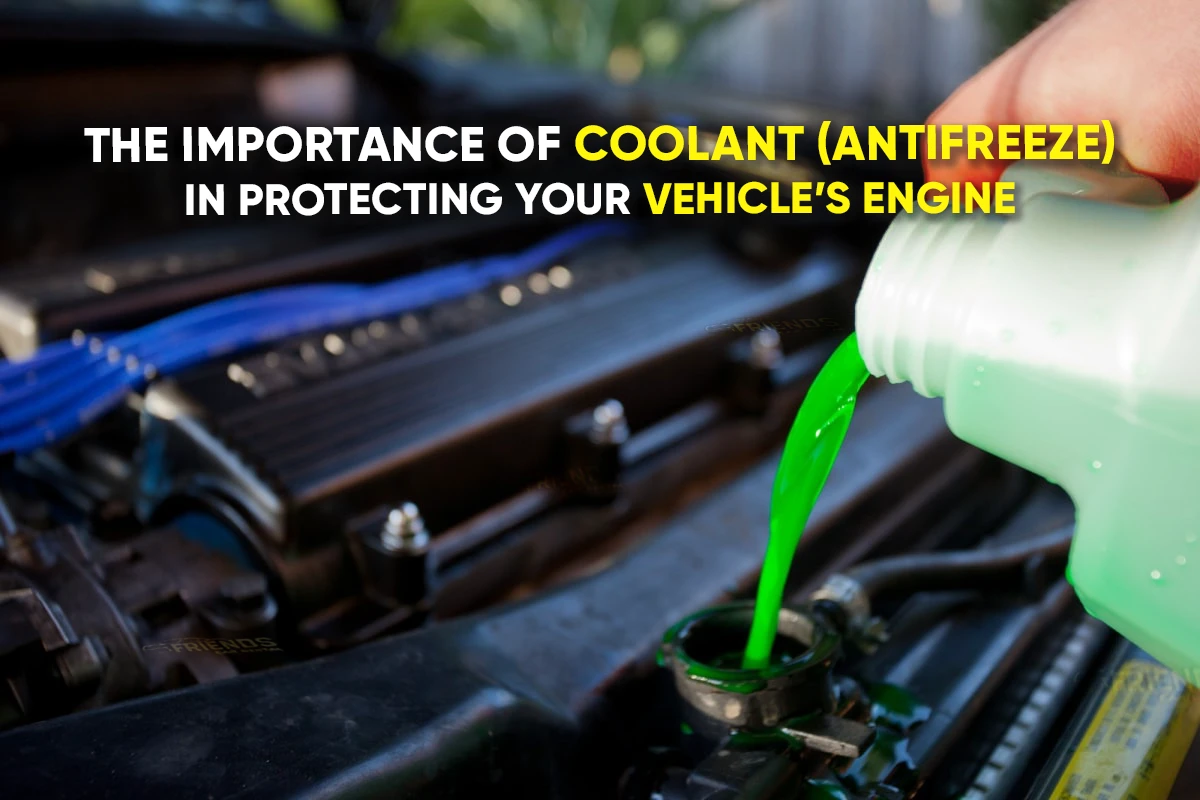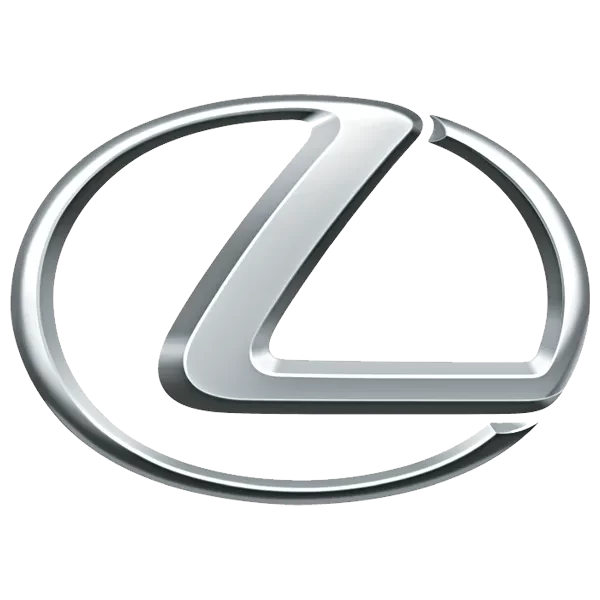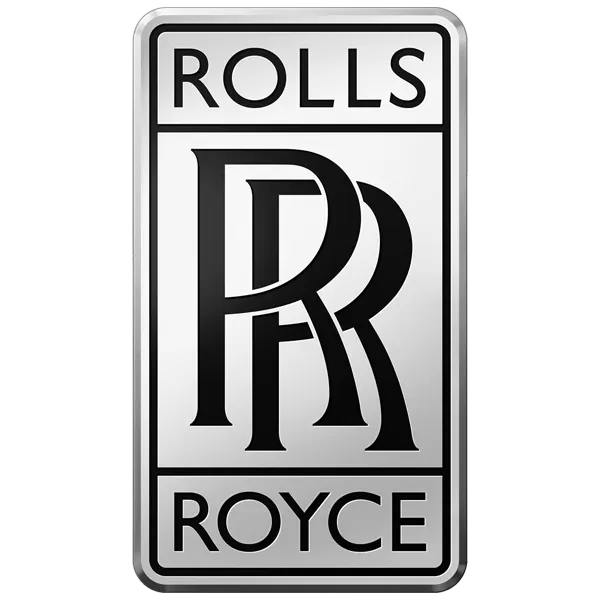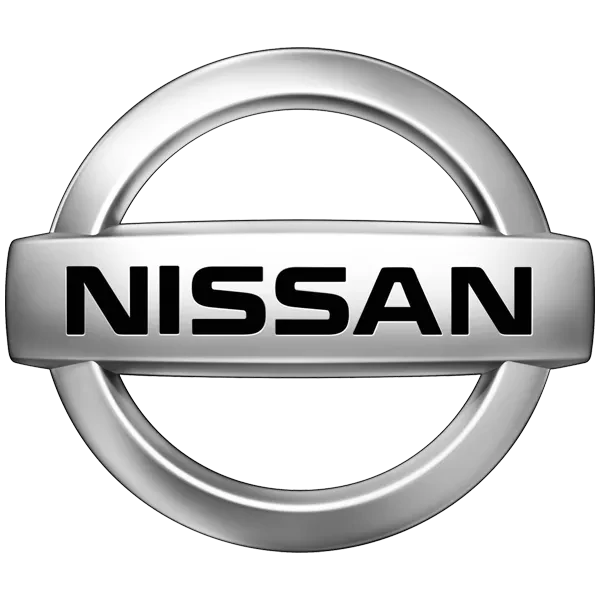The Importance of Coolant (Antifreeze) in Protecting Your Vehicle’s Engine

Coolant (also commonly known as antifreeze) is the unsung hero for ensuring your vehicle's smooth operation, especially in Dubai's sweltering heat. From preventing costly engine damage to significantly extending engine life, this vital fluid is essential for keeping your vehicle running optimally. This article will navigate through the critical importance of coolant (antifreeze) in protecting your engine, explain exactly how it works, and provide simple maintenance tips to ensure your vehicle stays on the road smoothly. Let’s dive in!
Importance of coolant (antifreeze) in protecting your vehicle's engine:
Prevents Costly Overheating Damage
Protects Against Freezing in Cold Climates
Inhibits Corrosion for Long-Term Durability
Lubricates Parts to Reduce Wear
Extends Engine Life for Better Reliability
Boosts Efficiency to Save Fuel
Prevents Electrolysis Damage
What Is Coolant (Antifreeze)?
Coolant is actually the mixture of water and antifreeze (typically ethylene or propylene glycol) with additives. Antifreeze itself is not a coolant, even though they are used interchangeably in the world of automotive repairs.
Coolant’s main purpose is to regulate engine temperature and protect the cooling system. It flows through the radiator, water pump, and hoses to prevent overheating, freezing, and corrosion.
At present, you will find different coolant types in the market, such as Organic Acid Technology (OAT) or Inorganic Acid Technology (IAT), which suit specific vehicles. These coolants perform optimally when chosen correctly, so always consult your owner’s manual for the right choice.
Related: Why Car AC Compressor Stops Working & How To Fix It
Benefits of Coolant for Your Vehicle’s Engine
Now that we've established what coolant is (and its relationship with antifreeze), let's dive into the critical benefits it provides for your vehicle's engine. Discover how coolant keeps engines running smoothly, making it truly indispensable:
1. Prevents Costly Overheating Damage
Coolant efficiently absorbs and dissipates the intense heat generated by engine combustion (which can reach up to 4,500°F inside the cylinders). It keeps your engine at a safe operating temperature, preventing damage to critical components like cylinder heads and gaskets, ultimately saving you from expensive repairs
2. Protects Against Freezing in Cold Climates
During cold seasons or in places where temperatures are exceptionally low, antifreeze ensures the liquid state of coolant by lowering the freezing point. This prevents ice formation, which is crucial for protecting the engine block and/or radiator from cracking. Coolant ensures engine reliability even in such frigid conditions, safeguarding your vehicle in any climate where temperatures drop significantly. However, this is not a direct benefit in Dubai, where you don’t need to worry about cold temperatures.
Related: Toyota's Water-Powered Car Engine
3. Inhibits Corrosion for Long-Term Durability
Besides antifreeze (ethylene glycol or propylene glycol), coolant also has additional additive entities that protect the engine’s metal components from corrosion and rust. This preserves the radiator, water pump, and other parts, reducing maintenance costs and extending their lifespan. Coolant is crucial for an engine's long-term durability.
4. Lubricates Parts to Reduce Wear
Beyond its primary roles, coolant also provides essential lubrication to specific moving components within the cooling system, such as the water pump's internal seals and bearings. This lubrication minimizes friction in these critical parts, significantly reducing wear and tear. By keeping these components operating smoothly, coolant helps ensure the entire cooling system functions optimally and reliably for years, contributing to its overall longevity.
5. Extends Engine Life for Better Reliability
By maintaining optimal temperatures and preventing corrosion, coolant reduces stress on engine components. This promotes long-term durability, keeping your vehicle reliable and reducing the need for major repairs.
6. Boosts Efficiency to Save Fuel
A properly cooled engine runs more smoothly & efficiently, which potentially improves fuel economy. This also significantly reduces carbon emissions. Coolant helps your vehicle perform at its best, saving you money at the pump.
7. Prevents Electrolysis Damage
Coolant additives combat electrolysis, a chemical reaction that can corrode metal components due to electrical currents. This protects the cooling system from hidden damage, enhancing durability. Coolants directly and indirectly ensure your vehicle's engine optimality.
How Coolant Delivers These Benefits
Coolant circulates through the engine and radiator while efficiently absorbing heat and transferring it away, which prevents engine overheating effectively. Furthermore, the additives in the coolant inhibit corrosion and electrolysis while lubricating parts, ensuring smooth functioning. In addition, the antifreeze component with glycol base prevents freezing and boiling to keep the engine optimal and damage-free in adverse temperatures.
This beautiful combination of different functions ensures your engine stays protected, operates efficiently, and remains reliable, delivering the benefits outlined above.
Simple Coolant Maintenance Tips
With a comprehensive understanding of the importance of coolant (antifreeze) in protecting your vehicle’s engine, let’s look at some insightful tips to maximize its benefits through simple maintenance:
Regularly inspect the coolant reservoir to check the proper levels, and top off with a 50:50 coolant-water mixture if low.
Always use the correct coolant type for your vehicle's engine. Choose the manufacturer-recommended coolant (e.g., OAT, IAT, HOAT) to avoid damage from incompatible mixtures.
Follow your vehicle’s manual, typically every 50,000 miles, to remove debris and maintain effectiveness. Flushing and replacing coolants is extremely crucial for smooth and efficient operation.
Make sure you only use distilled water to make your coolant. Avoid tap water to prevent mineral buildup when mixing coolant.
Inspect for leaks to make sure your coolant isn’t sipping away through loose ends. Check hoses and the radiator to ensure no coolant is lost.
Warning Signs Your Coolant Needs Attention
Now you know how to maintain a good level of ideal coolant in your vehicle, it’s equally important that you understand the warning signs when your coolant needs attention. Low or degraded coolant can undermine its benefits and harm your engine. Carefully watch for these signs:
Overheating: Temperature gauge spikes or warning lights.
Coolant Leaks: Puddles under the vehicle or a sweet smell.
Steam or Smoke: Indicates overheating or boiling coolant.
Low Levels: Visible in the reservoir or indicated by warnings.
Discolored Coolant: Signals corrosion or contamination.
Make sure to address these issues promptly by consulting a professional/mechanic to protect your engine. DIYs can be alternatives, but not ideal for optimal results.
Frequently Asked Questions:
What coolant should I use for my engine?
Always use the coolant type specifically recommended by your vehicle's manufacturer. This information can be found in your car's owner's manual. There are different coolants, each designed for specific engine materials and cooling system requirements. Using the wrong type can lead to corrosion, damage, and costly repairs.
Can I buy coolant at a petrol station?
Yes, you can often buy coolant at petrol stations, especially larger ones or those with a convenience store attached. However, it's crucial to buy the right coolant type that your car needs. It's generally best to get the exact type from an auto parts store if you're unsure.
How often should I check my coolant levels?
You should check your coolant levels regularly, ideally once a month or every time you get your oil changed. This simple routine allows you to spot low levels early and top off as needed, preventing potential overheating or other issues.
Can I use water instead of coolant in an emergency?
In an absolute, immediate emergency to prevent severe engine damage from overheating, you can temporarily use plain water to get your vehicle to a repair shop. However, this should only be a very short-term solution and never a permanent one.
What happens if I mix different types of coolant?
Mixing different types of coolant, especially incompatible ones like OAT with IAT or HOAT, can lead to serious problems for your engine and cooling system. The different chemical additive packages can react negatively with each other to form sludge that clogs radiators and damages other components.
How do I know if my coolant needs to be flushed?
To know if your coolant needs flushing, check your vehicle's owner's manual for recommended mileage or time intervals. If the coolant appears discolored, murky, or sludgy when you inspect, it also indicates flushing requirements.
Conclusion
Coolant plays an important role in keeping your vehicle's engine running smoothly and efficiently by lubricating key components, maintaining optimal operating temperatures even in extreme heat, and inhibiting corrosion and rusting. Keeping your coolant level intact and performing timely maintenance is key to ensuring your vehicle operates seamlessly while saving big bucks on repairs and parts replacements.
Make sure you keep track of these small details to save big. If possible, take professional assistance to achieve optimal outcomes. Do share your coolant experiences with us in the comments below and suggest if we missed anything.
Written by: FriendsCarRental
Published at: Sun, Jul 27, 2025 4:35 PM
Leave a Reply
Your email address will not be published. Required fields are marked *
Car Rental in Dubai
AED 2500
DAY
AED 0
MONTH
-
 SUV
SUV -
 4 Doors
4 Doors -
 5 Seats
5 Seats
- 1 Day Rental Available
- Deposit: Not Required
- Insurance Included
AED 5500
DAY
AED 0
MONTH
-
 Sports
Sports -
 2 Doors
2 Doors -
 2 Seats
2 Seats
- 1 Day Rental Available
- Deposit: Not Required
- Insurance Included
AED 1200
DAY
AED 0
MONTH
-
 SUV
SUV -
 4 Doors
4 Doors -
 5 Seats
5 Seats
- 1 Day Rental Available
- Deposit: Not Required
- Insurance Included
AED 1600
DAY
AED 0
MONTH
-
 SUV
SUV -
 4 Doors
4 Doors -
 5 Seats
5 Seats
- 1 Day Rental Available
- Deposit: Not Required
- Insurance Included
AED 1500
DAY
AED 28500
MONTH
-
 SUV
SUV -
 4 Doors
4 Doors -
 5 Seats
5 Seats
- 1 Day Rental Available
- Deposit: Not Required
- Insurance Included

 عربي
عربي
 English
English
 Français
Français
 Русский
Русский
 中国人
中国人
 Nederlands
Nederlands
 Española
Española
 Türkçe
Türkçe
 Italiana
Italiana














































